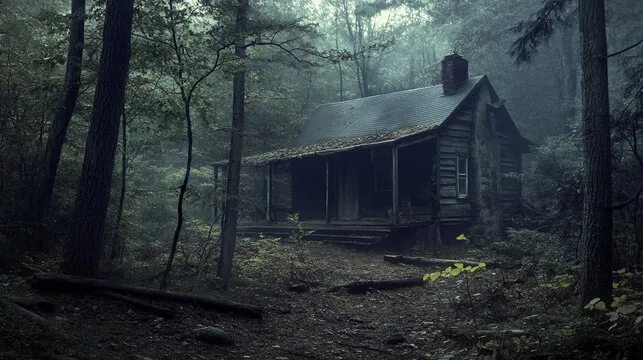Tropes are your friend
GMing a regular game often means being creative on a tight deadline.
This can be alleviated somewhat by running pre-written adventures/modules, but even then you are expected to fill in some blanks. If you are homebrewing everything, it can sometimes feel like a second job when the creative workload of adventure and setting creation falls entirely on you.
This can be an incredibly rewarding experience but it's also work. You gotta keep things fresh and engaging each time. It's hard to constantly strive for originality week on week. That’s an easy recipe for burnout.
This is where tropes come in to save the day.

Tropes get a bit of a bad reputation in the 21st century. We’ve culturally been in a post-modern frame of media analysis these last couple of decades where every trope needs to be deconstructed.
To be clear, I think this was necessary. Tropes should be interrogated. It’s how we identify the harmful ones and look for better ways to tell stories. But we shouldn’t dismiss every trope as problematic or lazy. They have their uses, after all. It's how we got them in the first place.
Search online though, and you'll find plenty of advice for how to subvert tropes or give them a unique twist. I'd argue you really don't need to do all that for your home games.
Because the reality is we actually do like a lot of these tropes. We like seeing the good guys win. We cheer when the Final Girl of a slasher film survives. We like our hard-boiled detectives. We like our haunted house on the hill. We really like our love triangles. These elements are familiar and ingrained in the pop-cultural conscience. If you consumed even a moderate amount of media, you already know these well.
Genres are really just a selection of tropes that are shared across similar stories. Sometimes its an aesthetic similarity: horror movies tend to have more shadows in the frame. Other times its plot beats that get repeated: In a romantic comedy, the lead usually has one last desperate measure to salvage the relationship they messed up (usually after a didactic speech from a loved one or best friend about how they messed up).
For your home games, I highly recommend embracing the tropes that come up time and time again in your preferred genre. It will make your life so much easier and make your players grok your adventures much faster.
If you say there’s a creepy cabin in the thick of the woods, players will have an idea of what awaits them there.
If they hear of a sword stuck in a stone somewhere they will know that sword must be really special.
If they are told of a Dragon’s Lair, it's fair that they assume it guards a hoard of treasure.
I think slyness is overrated in Game Mastering. I don’t like confusing my players, because it means they aren’t able to make informed decisions. When they recognize a trope, they can instinctively act on it. They can get a read on a situation without getting mired in exposition from the GM.
These baked in assumptions are so useful in play. The GM can use them as a basis of improvisation. The players know what they are in for. From there, you can build these moments into something truly unique. And because these are TTRPGs we are dealing with, these moments will be unique.
The other side of the coin is to lean into tropes as a player when playing your character. This isn’t the role that will net you an Oscar, you are there to have fun and compliment the party. It’s a wise move to go for a well known archetype. You get to be the hard boiled detective in Call of Cthulhu. You get to be the sly rogue in DND. Or the wizened magic user. Or the meathead fighter. Or the hard drinking cleric....
Play into what is fun for you. But sometimes it helps to have that clearly identifiable outline to slip back into that everyone at your table just gets. That’s pretty undervalued in my opinion. It’s important for the GM to know and understand your character concept so they have something to work with. By that same logic, the other players should have a clear idea of who your character is so they can best compliment that.
My point is you don’t need to re-invent the wheel when coming up with ideas for your home sessions. Your ideas don’t have to be new or groundbreaking. You can trust classic tropes because they have been tested countless times to great success. The people at the table will be the curveball that leads to an interesting outcome.
So yeah, use tropes to keep that creative flow going in your home games. Obviously, ignore the tropes you don’t like, but I’ll bet you like a fair few, so use those. And re-use them. And mix them. And twist them. They are storytelling tools after all. You get to decide how you want to apply them.